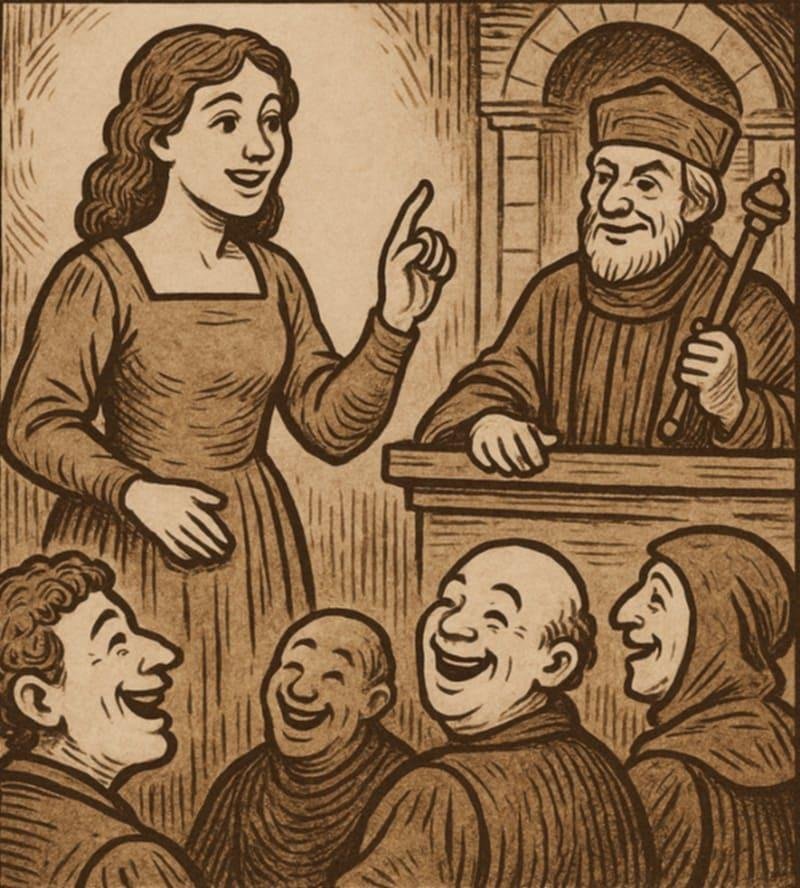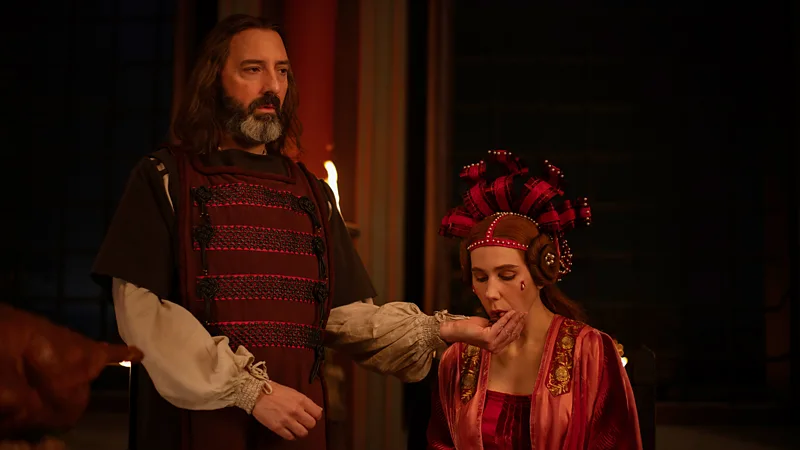Justice in Jest: Female Wit and Moral Irony in the Tale of Madonna Filippa

Introduction:
Giovanni Boccaccio’s 'Decameron' is filled with stories that blur the lines between morality and humor, especially through the lens of gender and social class. One such tale, from Day Six, told by Fiammetta, follows Madonna Filippa, a woman accused of adultery. Rather than deny the charges, she uses wit and logic to publicly shame her accusers and escape punishment. This tale provides a clever critique of rigid morality while celebrating female intellect and rhetorical skill.
Summary:
In the tale, Madonna Filippa is caught by her husband with a lover and is brought to court, accused of adulterya crime punishable by death. Instead of pleading for mercy, she argues that since she never denied her husband anything and had more love to give, she did no one harm by giving it to another. Her clever argument wins over the crowd and judge, who laugh and repeal the law, setting her free.
Analysis:
This story exemplifies one of 'The Decameron’s' central themes: the subversion of social norms through cleverness and humor. Madonna Filippa’s speech is not only logical but satirical, using the absurdity of the law to her advantage. Boccaccio frames the courtroom not as a place of justice, but as a stage where societal hypocrisies are exposed and defused with laughter.
The character of Madonna Filippa stands out as a representation of female agency in a patriarchal society. She does not deny her sexuality or attempt to conform to expected gender roles. Instead, she reclaims power through words, persuading a male-dominated court without relying on traditional appeals to modesty or submission.
Additionally, the tale uses irony to highlight the absurdity of the laws governing morality. Adultery, framed here as a capital offense, becomes a joke when confronted with rationality. The public’s reaction laughter and support for the accused underscores Boccaccio’s belief in the necessity of flexibility, empathy, and common sense over rigid codes.
Personal Response:
What struck me most about this tale is how modern it feels. Madonna Filippa’s boldness and rhetorical finesse would resonate even in today’s society. It’s not just funny it’s sharply political. I found myself rooting for her and admiring how Boccaccio uses humor to critique unjust laws. Her story reminds me that laughter can be a powerful tool for resistance.
Conclusion:
The tale of Madonna Filippa reflects Boccaccio’s skill in blending moral critique with entertainment. Through a humorous courtroom scene, he challenges rigid social codes and uplifts the power of reason, especially when wielded by women. Even centuries later, the tale remains a powerful and surprisingly progressive testament to justice, wit, and female empowerment.







